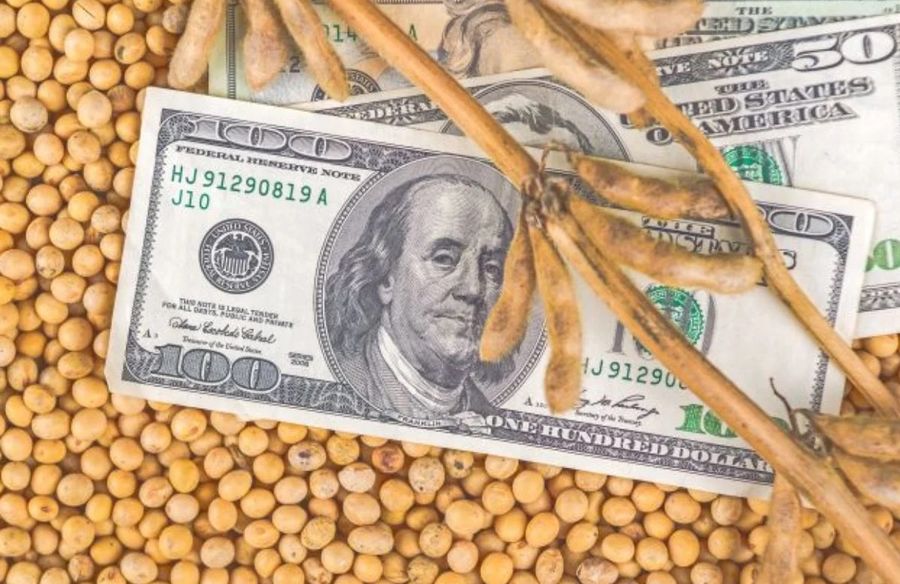Soybean prices retreat in Brazil, following the fall of the dollar and premiums

Soybean prices fell last week in the domestic market, in a period marked only by occasional deals. The retreat of the dollar against the real led the internal losses, despite the recovery of the CBOT futures contracts. Growers remain attentive to the climate and crop development.
A 60-kilogram bag fell from BRL 179.00 to 171.00 in Passo Fundo (RS) last week. In the same period, prices dropped from BRL 170.50 to 166.50 in Cascavel (PR). In Rondonópolis (MT), they dropped from BRL 163.00 to 160.00. At the Port of Paranaguá (PR), the bag dropped from BRL 182.00 to 178.00.
The main pressuring factor on internal benchmarks last week was the exchange rate behavior. The dollar accumulated a decline of 1.81% over the week, closing Friday at BRL 5.1130. Signs of improvement in the US economy and a softer decision on the monetary policy of that country next week determined the fall, besides the improvement in the foreign flow of the currency.
On the CBOT, the week saw a slight recovery from Wednesday. The market was coming from five consecutive sessions of decline, due to the return of rains in Argentina, stopping the loss in potential production of Argentine crops. Signs of good demand, higher oil prices, and technical recovery led to a positive close. On Friday, the market retreated again, but the weekly result was positive. The March contract posted an 0.2% gain for the week, pegged at USD 15.09 a bushel.
In fundamental terms, however, the picture remains negative for soybeans. Besides the improvement in the climate in Argentina, there is still a record crop in Brazil, above 153 mln tons, according to SAFRAS & Mercado, which weighs on export premiums due to the beginning of the harvest.
Growers continue to monitor the weather. Weather maps point to more beneficial conditions in February for Brazilian crops. There is still concern about the lack of rain in Rio Grande do Sul, which must once again reap a smaller-than-expected crop. In the states of the Center-North, excessive precipitation hinders the harvest, which is still progressing slowly.
Read also
Ukraine is ready to help Syria prevent food crisis – Zelenskyy
Join with the EARLY RATE – 22 International Conference BLACK SEA GRAIN.EUROP...
Brazil sugar output decreased by 23% — Unica
Algeria imposes a complete ban on durum wheat imports in 2025
Weather in Brazil and Argentina remains favorable for the future harvest of soybea...
Write to us
Our manager will contact you soon



